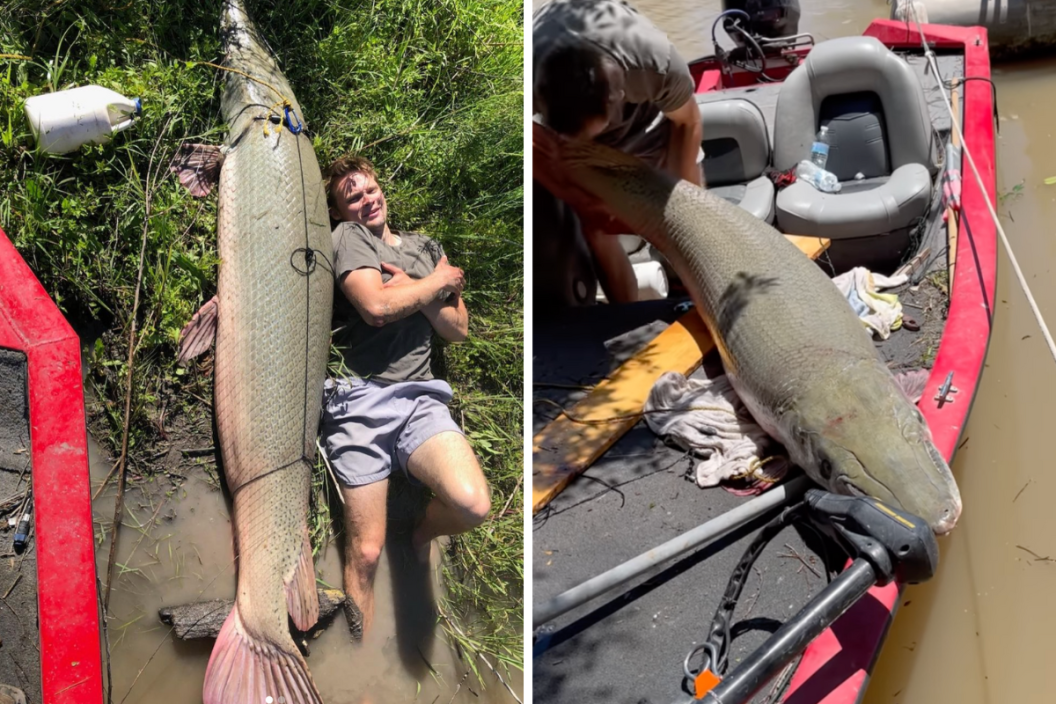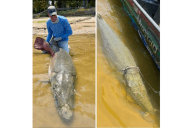A Texas fisherman reeled in a record-breaking alligator gar while fishing in Texas last month. The lucky angler, Paul Hefner, was fishing in Lake Corpus Christi when he snagged the 207-pound monstrosity of a fish.
Hefner told KSAT that he captured the fish, measuring 7 feet, 6 inches, on April 13. Hefner's father has been fishing in the same area since the 1980s and accompanied Paul on this particular trip, so he was the photographer behind Hefner's Instagram photo of him and his oversized prize. In the photo, Hefner is lying partly in the water next to the fish, which dwarfs him in size.
https://www.instagram.com/p/CrhP3elO1_D/
The pair are avid fishermen who clearly live by the "go big or go home" motto, frequently going after larger fish.
"We weren't just targeting gar, we also were targeting flathead and blue catfish," Hefner said. "We broke the Nueces River blue catfish record as well — four separate times."
The secret to their consistency? Hefner and his father cast nets while using live bait to capture carp, tilapia, and buffalo fish. He credits his success to following past advice his father got from a seasoned angler.
"As an old man once told my dad in the '80s, 'the bigger the bait, the bigger the fish.' In this case, it was a live 12-inch tilapia that caught the record gar," Hefner said.
River levels also may have contributed to the catch of a lifetime.
"We're not sure if the extra flow helped with the gar since it was on the lake, but maybe the freshwater flowing in from the river got it moving. I think that was the only fish we caught that day, actually," Hefner continued.
Don't worry—this behemoth of a fish lived to see another day. After Hefner and his father snapped some pics for posterity, the fish was released back into the water. Hefner posted a video of the release on his Instagram account, which the Texas Parks and Wildlife Department also shared.
As big as the fish was, it didn't break the word record. The world record gar weighed 327 pounds and was believed to be around 95 years old, according to the Texas Parks and Wildlife Department. The record holder was caught in the Mississippi River in 2011. In 2009, the TPWD enacted a statewide bag limit on the species of one per day to prevent overfishing.
Despite their terrifying namesake, alligator gar are not known to harm people. Unlike alligators, the gar's teeth are meant to hold onto prey—not rip them apart.
"Alligator gar are an important part of Texas fisheries," TPWD officials said. "Their ancestors have been found in Permian deposits as fossils from 215 million years ago, making them not only one of the most ancient fishes but also truly native Texans."




